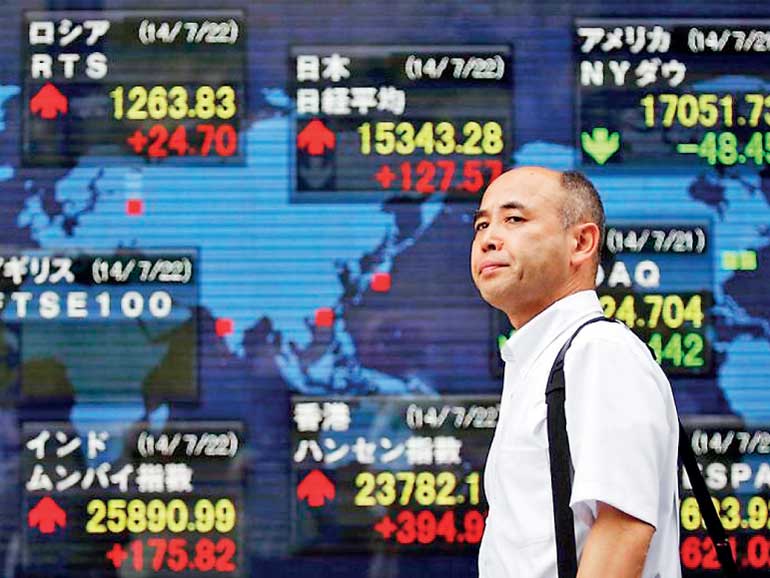Friday Feb 20, 2026
Friday Feb 20, 2026
Friday, 8 December 2017 00:00 - - {{hitsCtrl.values.hits}}

Reuters: Foreigners trimmed their holdings in most Asian stocks markets in November as investors started to book profits after this year’s solid rally.
November data from seven Asian exchanges showed foreign investment for the month totalled about $ 400 million, down 90% compared to flows in October.
Khoon Goh, head of Asia research at ANZ, said some profit taking in Asian equities caused inflows to slow down last month.
“While we expect portfolio flows into the region to stay positive, the amount will likely moderate from this year’s levels,” said Goh.
In November, India led the region with over $ 3 billion of inflows, driven by a sovereign rating upgrade by Moody’s, a $ 32 billion funding plan for state-owned banks, and a strong rupee.
Taiwan and Indonesian equities saw over $ 1 billion of outflows each, while South Korea and Vietnam had inflows of about $ 400 million and $ 500 million, respectively.
MSCI’s broadest index of Asia-Pacific shares outside Japan reached a decade high last month, however it has fallen nearly 4% in the last two weeks. The price-to-earnings ratio of MSCI Asia-ex-Japan stood at 13.4, still less than MSCI United States’ 18.7 and MSCI World’s 16.3.
Robust foreign flows in the first half of the year started to slow in the second half as US Treasury yields rose sharply, reducing the appeal of Asian shares.
The two-year Treasury yield hovered near a nine-year high on Thursday, driven by the Fed’s monetary tightening plans and hopes tax reform will boost the economy.
Recent Reuters polls showed a majority of economists expect another three Fed rate hikes next year and the ECB to shut the door on its monthly asset purchases by the end of next year.
“Global liquidity is set to ease next year, driven by a decline in major central bank balance sheets, wider credit spreads and an expected pick-up in volatility,” said ANZ’s Goh.
“We expect more volatile capital flows into the region (in 2018).”